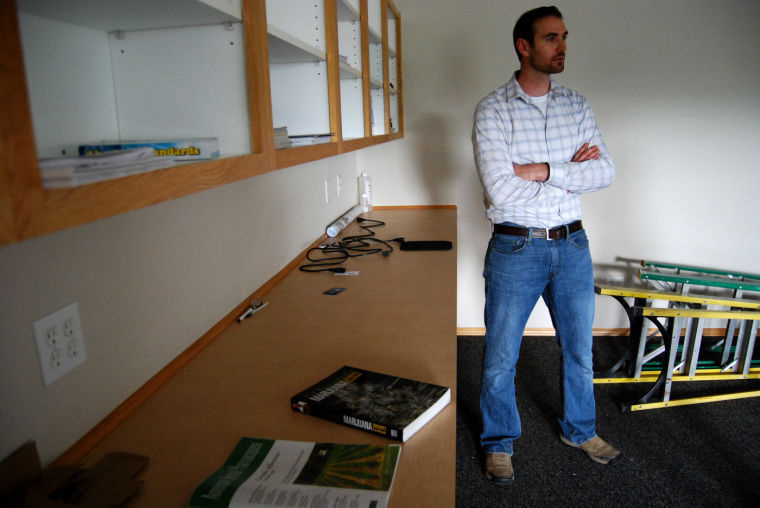Pullman gets first pot testing lab in Eastern Wash.
July 16, 2014
Pullman will be home to the first pot testing lab in Eastern Washington.
The scientific director of the California-based CannaSafe Analytics, Aaron Stancik, said he hopes the company’s Pullman lab will be testing samples by the end of the month.
Stancik, 35, of Genesee, Idaho said he was eager to return to the Palouse after training for the job in California. What’s more, he said, Pullman is also the ideal location for the CannaSafe lab.
“I see the industrial park here as a place for primary original research to take place,” he said. The lab is located in the industrial park off Terre View Drive.
Another reason Stancik proposed that the lab branch out of the Golden State is that there are no others in Eastern Washington. He explained that the labs, which ensure pot is within state regulations, are necessary for a market to exist in the region.
“There’s a bottleneck in the system,” he said. “If they can’t test the cannabis, it can’t go to market.”
Under state law, a small sample from each batch of pot grown must be analyzed in an independent, third-party lab, such as CannaSafe Analytics.
“Every cannabis product in Washington is tracked from seed to sale,” Stancik said, noting that information reports for each tested batch will be uploaded to a database operated by the state Liquor Control Board.
The lab will also test medicinal cannabis, which is kept separate from the recreational-use samples.
As pot labs and distributors may not be located within 1,000 feet of any schools, playgrounds and day cares, Stancik said commercial real estate was hard to find.
“When you’re dealing with the cannabis industry, it’s especially challenging, and there’s more hoops to jump through,” he said.
One of those hoops was the search for a bank that would help finance the lab, Stancik said. It took about a year to secure the necessary funds.
The testing process includes screening for foreign matter like carpet fiber and lead dust, he said. If the pot fails to meet regulations, it can’t be sold as a flower or bud. However, pot that doesn’t meet some standards may undergo different testing and be made into an extract.
Stancik holds a doctorate degree in chemistry from the University of Idaho. He said he has been interested in the science behind THC and cannabis since high school.
The next-closest testing lab in the state is Analytical 360 in Yakima.





















